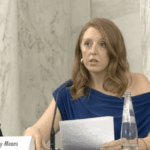Keeping the Biological Weapons Convention relevant
By Gabrielle Tarini | November 1, 2016
Officials gathering in Geneva next week to examine the status of the Biological Weapons Convention (BWC) will have a choice between plodding along with the current, broken process or taking concrete steps to reinvigorate a treaty that is integral to the international security landscape. For the 41-year-old treaty, the upcoming Eighth Review Conference is a pivotal opportunity for countries to take action to ensure that the treaty remains a relevant and useful tool for preventing the development, spread, and use of biological weapons. A failure by member states to invest the necessary attention, time, and political capital in the conference could mean decreased interest and weakened multilateral engagement in a treaty that was the first to ban an entire category of weapons of mass destruction.
The treaty prohibits the possession of biological and toxin weapons. It covers a broad range limited primarily by intent: Parties to the Biological Weapons Convention agree not to develop, acquire, or retain agents, toxins, or delivery systems for non-peaceful purposes. The treaty has been tremendously successful in building a broad agreement that the life sciences should only be used for benign purposes, and a robust norm against the use of disease as a means of warfare. While membership in the BWC is not yet universal, no state claims that biological weapons are a legitimate means of national defense. Even countries that are thought to be pursuing biological weapons, such as North Korea, do not assert that they have a right to these weapons, or that biological weapons are a legitimate means of strategic deterrence.
The parties to the BWC agree that it is an important disarmament treaty representing a strong norm against biological weapons, but that is one of their few areas of agreement. Translating consensus into action has been difficult; the language adopted at previous Review Conferences has often repeated broad generalities and failed to advance a common agenda. This time around, the countries that are parties to the treaty should aim for fresh language and delineate specific actions to take.
Keeping pace with biotechnology. The purpose of the Review Conference, held every five years, is to review the operation of the treaty and consider whether any new scientific and technological developments could enable activities that are inconsistent with the aims and objectives of the treaty, and that are not already covered by its provisions. There are several key issues at stake in the upcoming conference, scheduled for November 7–25.
Perhaps most critically, the BWC must find a more effective way to adapt to the rapid pace of scientific and technological change. Biotechnology methods and equipment are more powerful than ever, and barriers to their acquisition and use have eroded. For example, new gene-editing methods, such as Crispr, have significant biosecurity implications. Crispr has grabbed national headlines as the latest example of the dangers of dual-use technology. Earlier this year, Director of National Intelligence James R. Clapper named genome editing as a development with potential implications for the development of weapons of mass destruction, alongside North Korea’s nuclear weapons, new Russian cruise missiles, and undeclared chemical weapons in Syria.
Crispr is currently the most popular gene-editing method and has been revolutionizing scientific research. It is a unique technology that enables geneticists and medical researchers to edit parts of the genome by cutting out, replacing, or adding snippets to the DNA sequence. While genome editing itself is not a new process, older techniques are more difficult, less accurate, and quite expensive. The Crispr system is faster, more reliable, and cheaper. (The basic ingredients can be bought online for approximately $60.) The low cost and increased availability of these techniques have policymakers concerned that they could be used by individuals or groups with limited expertise and a lack of knowledge of safety and security precautions—or, even worse, by sub-state groups seeking to produce an enhanced pathogen to inflict harm on civilian populations.
Given the speed at which science and biotechnology are advancing, more effective arrangements are needed to present, digest, and discuss relevant developments—including Crispr and others—and their implications for the BWC. There are already inherent challenges in meaningfully addressing science and technology in a diplomatic meeting, and the current process only exacerbates these difficulties rather than providing effective workarounds.
Incorporating expert input. Other international agreements, such as the Chemical Weapons Convention, have permanent advisory boards to track and respond to scientific change; the BWC, however, does not have a dedicated process to inform and advise member states. The Review Conference only occurs once every five years, so it cannot ensure timely consideration of scientific advances. Furthermore, the Review Conference must accomplish a myriad of other objectives, leaving insufficient meeting time to do justice to science and technology issues.
The most recent intersessional process added a Standing Agenda Item on developments in science and technology to the BWC’s annual Meeting of Experts, which has meant that, at the very least, treaty members will discuss relevant developments once a year. But even at the experts’ meeting, the latest developments are still getting lost in the general work of the BWC, and there is no opportunity for the experts’ conversations to be fed back into the policy process. What’s more, many countries do not show up to the Meeting of Experts, so they remain uninformed about new developments—and potential policies to deal with them. Treaty members should take action at the Review Conference to replace the current ad hoc process with a separate, structured, expert-led regime that will allow for the continuous monitoring and evaluation of developments in science and technology relevant to the BWC.
A stronger framework. The Eighth Review Conference not only provides an opportunity to establish a stronger, more strategic scientific review process, but also offers a platform to revamp the intersessional process and institutional structures more broadly. Again, this is important because review conferences are not frequent enough to accomplish the laundry list of important objectives. Treaty members will have to think about new intersessional meetings, what format they should take, and which topics they should cover.
The countries that are part of the BWC will also have to consider the future of the Implementation Support Unit, because its mandate will expire next year. That unit is tasked with enormous responsibilities that far exceed the capabilities of its three-person staff: helping nations implement the treaty, providing support and assistance for confidence-building measures, administering a database of assistance requests and offers, and facilitating exchanges of information, to name just a few of its duties. It is high time for the Implementation Support Unit to be expanded.
The way in which discussions are planned and held should be restructured, with a stronger steering body and increased time for preparation and multilateral engagement. Adding more meetings, and limiting what gets discussed at each of those meetings, would allow the BWC to begin operating more like an international organization and would provide oversight equivalent to that for other nonproliferation treaties.
While the norm embodied in the BWC remains strong, the international community must go beyond raising awareness and toward more specific understandings about what countries should do to enhance the strength and influence of the treaty. Establishing a more strategic science and technology advisory process and strengthening the intersessional process and institutional structures are sound places to start.
Editor's note: A correction was made to this article to clarify that the treaty itself will not be restructured, but rather that the way in which treaty discussions are planned and held should be restructured.
Together, we make the world safer.
The Bulletin elevates expert voices above the noise. But as an independent nonprofit organization, our operations depend on the support of readers like you. Help us continue to deliver quality journalism that holds leaders accountable. Your support of our work at any level is important. In return, we promise our coverage will be understandable, influential, vigilant, solution-oriented, and fair-minded. Together we can make a difference.
Topics: Biosecurity, Voices of Tomorrow















